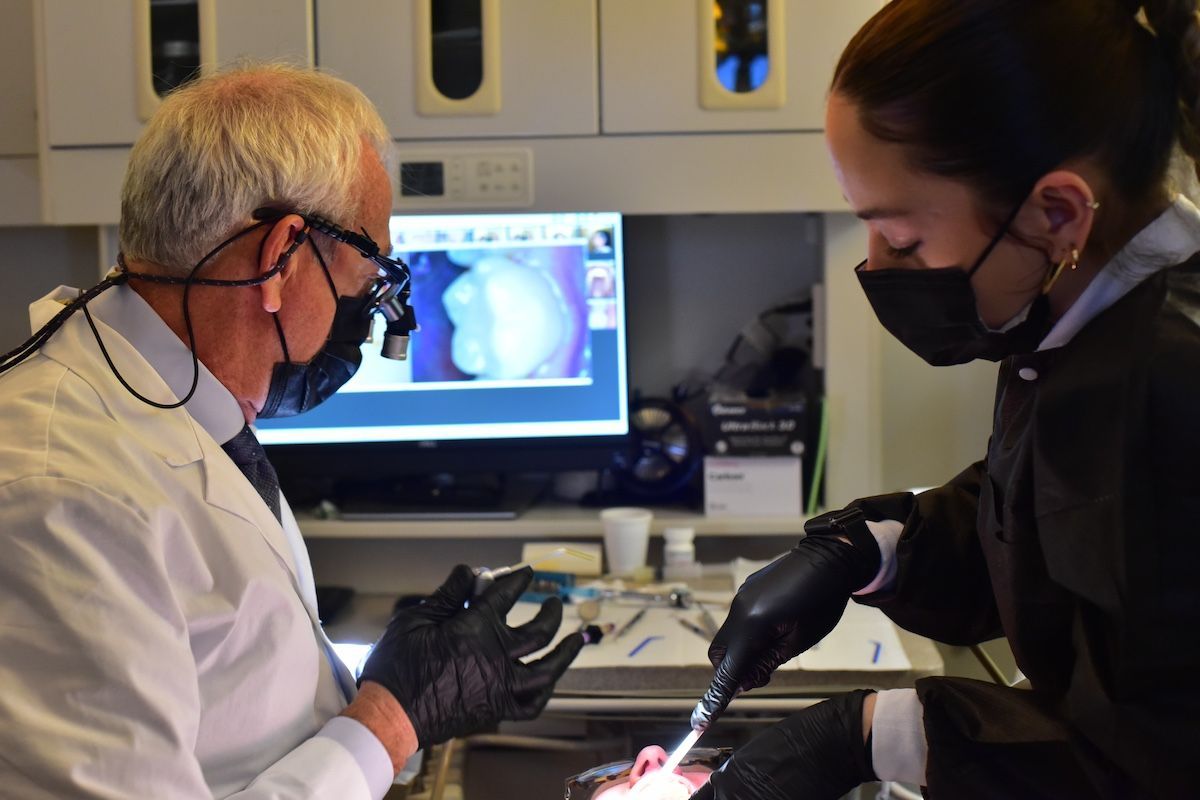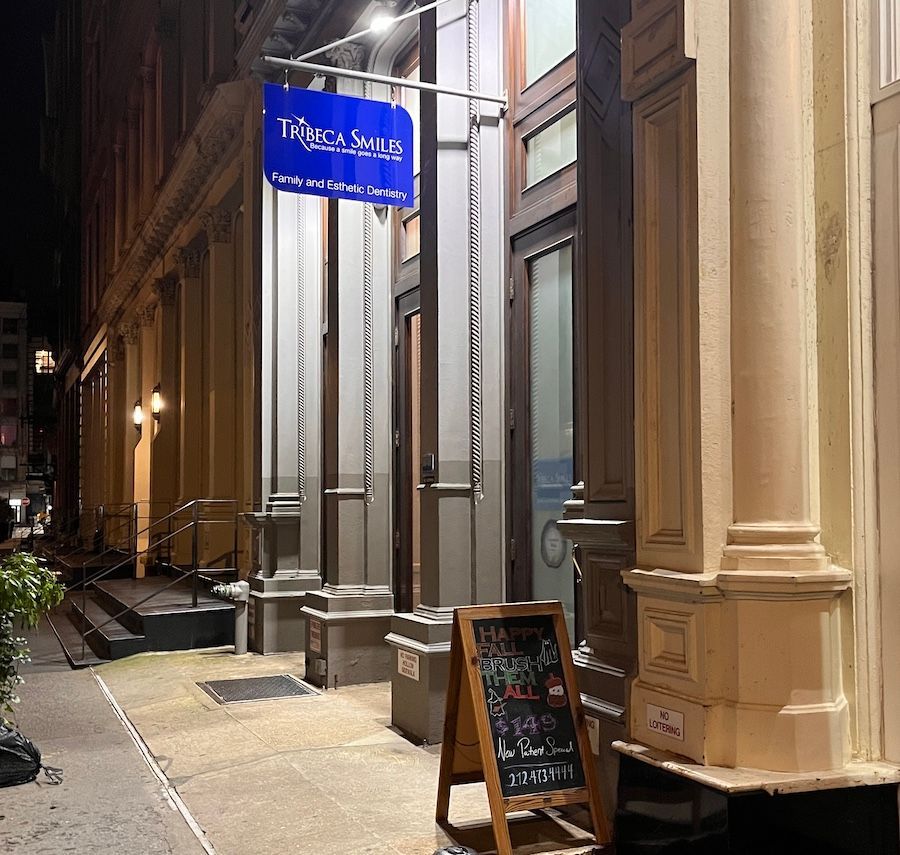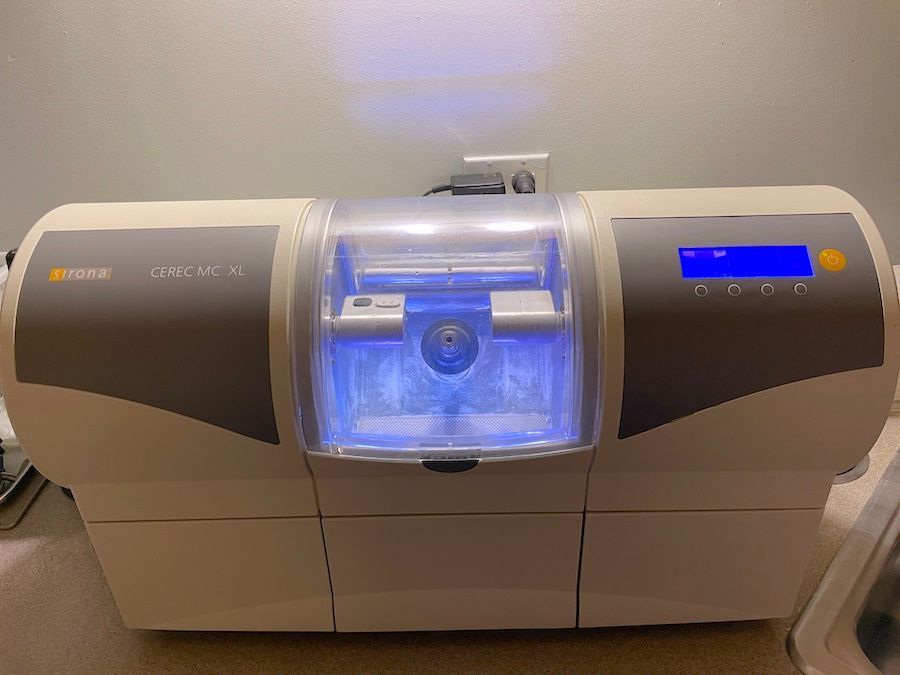Veneers vs. Crowns - Which Is Right for You? Tribeca Dentist Explains
Key Takeaways
- Veneers vs. crowns: Dental veneers are thin shells covering only the front of teeth for cosmetic issues, while crowns encase the entire tooth for both cosmetic and structural support
- Types of dental veneers include porcelain (lasting 10-15+ years) and composite (lasting 5-7 years), with costs ranging from $250-$2,500 per tooth
- Dental veneers require minimal tooth reduction compared to crowns, making them a less invasive option for smile makeover

| Table of Contents |
|---|
| 1. Veneers vs. Crowns: Which Option is Best for Your Smile Makeover in Tribeca, NYC? |
| 2. Veneers or Crowns? Deciding What's Right for Your Smile |
| 3. Step-by-Step: Creating Your Custom Veneer Smile Makeover |
| 4. What Are the Different Types of Dental Veneers Available in New York City? |
| 5. Dental Bonding & Whitening vs. Veneers NYC |
| 6. Dental Veneers and Missing Teeth: Combined Treatment Options |
| 7. Implants, Veneers, & Crowns: Cost Breakdown Tribeca NYC |
| 8. Creating Natural Veneers: Your Guide to a Perfect Smile |
| 9. How Long Do Veneers Last and How to Extend It |
| 10. How Much Do Veneers Cost in NYC? |
| 11. Do Insurance Plans Cover Veneers? |
| 12. Frequently Asked Questions About Dental Veneers |
Veneers vs. Crowns: Which Option is Best for Your Smile Makeover in Tribeca, NYC?
- Dental veneers are thin shells for the front surface of teeth, ideal for cosmetic issues like stains and chips
- Dental crowns cover the entire tooth, providing both aesthetic improvement and structural support
- Veneers require minimal tooth reduction (0.5mm) while crowns need more extensive reshaping
The choice between dental veneers and crowns depends on your specific needs.
Veneers are ultra-thin shells covering only the front of teeth to fix cosmetic issues like stains, chips, and gaps.
Crowns are tooth-shaped caps covering the entire tooth, providing both cosmetic improvement and structural support.
The main difference? Veneers need minimal tooth reduction (about 0.5mm), while crowns require more extensive reshaping. This makes veneers less invasive when your teeth are structurally sound but have cosmetic flaws.
Dental Veneers or Crowns? Deciding What's Right for Your Smile
When deciding between veneers and crowns, think about what you're trying to fix. Veneers excel at cosmetic improvements, while crowns are better for teeth that need structural repair.

| Feature | Veneers | Crowns |
|---|---|---|
| Coverage | Front surface only | Entire visible tooth |
| Primary Purpose | Minimal reduction | More extensive reshaping |
| Durability | 10-15+ years (porcelain) | 15-30+ years |
| Cost Range | $250-$2,500 per tooth | $800-$3,500 per tooth |
| Insurance Coverage | Rarely covered | Often partially covered if restorative |
The best cosmetic dentists in New York will help you choose which option better suits your needs based on the condition of your teeth, your goals, and your budget.
If your teeth are healthy but you're unhappy with their appearance, veneers might be the right choice.
If your tooth has significant damage or decay, a crown will likely be recommended.
Step-by-Step: Creating Your Custom Veneer Smile Makeover
Getting dental veneers typically involves several steps spread across a few dental appointments:
- Initial Consultation: Your dentist will examine your oral health and discuss your smile goals. This may include X-rays to ensure your teeth and gums are healthy.
- Tooth Preparation: A small amount of enamel (about 0.5mm) is removed from the front surface of your teeth to make room for the veneers. Local anesthesia is often used to keep you comfortable.
- Impressions: Your dentist takes molds or digital scans of your prepared teeth, which will be used to create your custom veneers.
- Temporary Veneers: While your permanent veneers are being made, temporary ones may be placed to protect your teeth and maintain your appearance.
- Bonding: When your custom veneers are ready, your dentist will check their fit and appearance before permanently bonding them to your teeth using special dental cement and a curing light.
- Final Adjustments: Any excess cement is removed, your bite is checked, and final adjustments are made to ensure a natural look and comfortable fit.
The entire process is designed to create veneers that blend seamlessly with your natural teeth. Many patients in NYC choose specialized cosmetic dentists who have extensive experience with veneer placement to ensure the best results.
What Are the Different Types of Dental Veneers Available in New York City?
New York City dental offices offer several types of veneers, each with unique characteristics:
Porcelain Veneers
Porcelain veneers are the gold standard for smile makeovers. They're custom-made from ceramic material and known for their:
- Natural translucency that mimics tooth enamel
- Excellent stain resistance
- Durability (10-15+ years with proper care)
- Ability to cover significant discoloration
Within porcelain veneers, you'll find options like:
- Stacked ceramic veneers: Hand-crafted for optimal natural appearance
- Pressed ceramic veneers: Thicker and more durable but require more enamel removal
- Lithium disilicate veneers (EMAX): High strength, good for people who grind their teeth
- Zirconia veneers: The strongest type, ideal for severely damaged teeth
Composite Veneers
Composite veneers are made from tooth-colored resin and offer:
- More affordable pricing ($250-$1,500 per tooth)
- Single-visit application in many cases
- Less enamel removal than porcelain
- Shorter lifespan (5-7 years on average)
- More susceptibility to staining and chipping
No-Prep/Minimal-Prep Veneers
Brands like Lumineers fall into this category and feature:
- Little to no removal of natural tooth enamel
- Thinner than traditional porcelain veneers
- Potential reversibility in some cases
- May not work well for severely discolored teeth
Removable Veneers
Also called snap-on veneers, these are:
- Non-permanent and removable at any time
- More affordable than permanent options
- Primarily for cosmetic purposes
- May feel bulky and affect speech
Choosing the right type depends on your specific needs, budget, and how long you want your results to last. Tribeca cosmetic dentists can help you weigh these factors to make the best decision for your smile.
Dental Bonding & Whitening vs. Veneers NYC
If you're not sure veneers are right for you, there are several alternatives worth considering:
Teeth Whitening
Professional KöR whitening can dramatically brighten your smile:
- Less invasive and more affordable than veneers
- Great for addressing stains and discoloration
- Doesn't fix structural issues like chips or gaps
- Results aren't permanent and require maintenance
For those looking for natural teeth whitening options in NYC, some dentists offer more holistic approaches as well.
Dental Bonding
Dental bonding uses composite resin to:
- Cover chips, cracks, and minor gaps
- Reshape teeth
- Provide quick results (usually one visit)
- Cost less than veneers ($100-$600 per tooth)
- Last 3-10 years with proper care
Orthodontics
Braces or clear aligners can:
- Correct misalignment, crooked teeth, and gaps
- Address the underlying cause of alignment issues
- Take several months to years to complete
- Focus on alignment rather than color or shape issue
The right choice depends on your specific dental concerns, budget, and how much time you're willing to invest in the process.
Dental Veneers and Missing Teeth: Combined Treatment Options
Dental veneers alone can't replace missing teeth because they need an existing tooth structure to bond to. However, they can be part of a comprehensive smile restoration plan that includes:
Dental Implants with Veneers
Dental implants replace the entire missing tooth, including the root. Veneers can then be placed on adjacent teeth to ensure a consistent appearance across your smile.
Benefits of combining implants and veneers include:
- Permanent replacement for missing teeth
- Stable foundation that prevents bone loss
- Comprehensive smile restoration
- Natural-looking results
For those interested in more affordable options, snap-on dental implants might be worth exploring.
Dental Bridges with Veneers
Bridges replace missing teeth by using artificial teeth anchored to adjacent natural teeth. Veneers can enhance the appearance of the supporting teeth for a uniform look.
Minor Gap Closure
For very small gaps between teeth, veneers might be used on the adjacent teeth to close the space cosmetically. However, this only works for minor spacing issues, not for replacing fully missing teeth.
Working with a dentist who specializes in both cosmetic and restorative dentistry ensures you get a treatment plan that addresses both function and aesthetics.

Implants, Veneers, & Crowns: Cost Breakdown Tribeca NYC
When planning a complete smile restoration that may include implants, veneers, and crowns, it's important to understand the cost breakdown:
A single dental implant typically costs $2,000-$8,000, including:
- The implant post (titanium or zirconia)
- The abutment (connector)
- The crown that sits on top
For a full mouth reconstruction, costs can range from $15,000 to $80,000 or more, depending on:
- Number of missing teeth
- Type of implants used
- Need for additional procedures like bone grafting
- Geographic location (NYC dental work tends to be more expensive)
- Experience of the dental team
When implants are combined with veneers or crowns on remaining teeth, the overall cost increases, but the result is a complete transformation that addresses both missing teeth and cosmetic concerns.
Many NYC dental practices offer financing options to make these investments more manageable. Some also provide free consultations to discuss treatment plans and associated costs.
Creating Natural Veneers: Your Guide to a Perfect Smile
The key to a beautiful smile makeover is veneers that look completely natural. Here's how top cosmetic dentists in Tribeca achieve this:
Shade Selection
The color of your veneers should complement your:
- Skin tone
- Eye color
- Age (extremely white veneers can look artificial)
Dentists use special shade guides and may even create custom shades to match your existing teeth or achieve your desired look while maintaining a natural appearance.
Shape Customization
The shape of your veneers should:
- Match the proportions of your face
- Consider gender characteristics (masculine or feminine features)
- Create balance with your other facial features
- Look harmonious with adjacent teeth
Translucency and Texture
Natural teeth aren't flat or opaque. Quality veneers replicate:
- The translucency of natural enamel
- Surface textures that reflect light naturally
- Subtle color variations found in natural teeth
Material Selection
Porcelain veneers generally look more natural than composite because they:
- Better mimic the light-reflecting properties of natural enamel
- Maintain their color and appearance longer
- Can be layered to create depth
Choosing askilled cosmetic dentist in Manhattan who understands these principles is essential for achieving natural-looking results.
How Long Do Veneers Last and How to Extend It
The durability of your dental veneers depends largely on the material used and how well you care for them:
Porcelain Veneers
- Typically last 10-15 years
- Can last 20+ years with excellent care
- Resist staining and maintain their appearance longer
Composite Veneers
- Generally last 5-7 years
- May extend to around 10 years with proper maintenance
- More prone to staining and wear over time
To maximize the lifespan of your veneers:
- Practice excellent oral hygiene - Brush twice daily and floss daily to prevent decay in the underlying tooth.
- Avoid using teeth as tools - Don't open packages, bite nails, or chew ice with veneered teeth.
- Limit stain-causing foods and drinks - Coffee, tea, red wine, and dark foods can stain composite veneers and the margins of porcelain veneers.
- Use a nightguard if you grind your teeth - Bruxism (teeth grinding) can damage veneers over time.
- Schedule regular dental check-ups -
Routine dental cleanings and examinations help catch and address potential issues early.
- Address dental emergencies promptly - If you notice a loose veneer or tooth, contact your dentist right away.
How Much Do Veneers Cost in NYC?
The cost of dental veneers varies widely based on several factors:
By Material Type
- Porcelain veneers: $900-$2,500 per tooth
- Composite veneers: $250-$1,500 per tooth
- No-prep veneers (like Lumineers): $800-$2,000 per tooth
- Removable veneers: $300-$1,500 for a full set
Factors Affecting Cost
- Dentist's expertise - Highly skilled cosmetic dentists, particularly in New York City, often charge premium rates.
- Geographic location - Dental work in Tribeca and other parts of NYC typically costs more than in smaller cities.
- Number of veneers - Most people get 6-8 veneers for the front teeth that show when smiling.
- Laboratory quality - High-end dental labs create more natural-looking, durable veneers but charge more.
- Additional procedures - You may need other treatments like gum contouring or teeth whitening before veneer placement.
For a complete smile makeover with porcelain veneers on 6-8 teeth, expect to pay anywhere from $5,400 to $20,000 in the New York City area.
While this represents a significant investment, many people find the confidence and satisfaction from their transformed smile well worth the cost.
Do Insurance Plans Cover Veneers?
Most dental insurance plans do not cover veneers because they're typically considered cosmetic procedures rather than medically necessary treatments. However, there are exceptions:
When Insurance Might Cover Veneers
Insurance may provide partial coverage if veneers are deemed necessary for:
- Repairing damage from an accident, injury, or disease
- Restoring teeth damaged by severe decay or enamel loss
- Correcting severe discoloration that doesn't respond to whitening
- Addressing congenital dental defects that affect function
Navigating Insurance and Payment Options
To maximize potential coverage:
- Review your dental insurance policy carefully to understand exclusions and stipulations.
- Ask your dentist about medical necessity documentation if your case might qualify.
- Request pre-authorization from your insurance provider before proceeding.
- Consider alternative financing options like:
- Dental savings plans
- Healthcare credit cards (CareCredit, etc.)
- Payment plans offered by your dental office
- Health Savings Accounts (HSAs) or Flexible Spending Accounts (FSAs)
5. Explore composite veneers if cost is a major concern, as they're significantly less expensive than porcelain.
Most NYC cosmetic dentists offer free consultations where they can discuss your specific case and help you understand potential costs and payment options.
Frequently Asked Questions About Dental Veneers
Are dental veneers painful to get?
Getting veneers is usually not painful. Your dentist will use local anesthesia during tooth preparation, and most patients report minimal discomfort. After placement, you might experience some sensitivity for a few days, but this typically resolves quickly.
Can I eat normally with dental veneers?
Yes, you can eat most foods with veneers. However, it's best to avoid using your front teeth to bite into very hard foods like apples or carrots. Cut these foods into smaller pieces and chew with your back teeth instead.
How do I know if I'm a good candidate for veneers?
Good candidates for veneers have generally healthy teeth and gums but cosmetic concerns like discoloration, chips, or minor gaps. You should also have sufficient healthy enamel for the veneers to bond to. A consultation with a cosmetic dentist will determine if veneers are right for you.
Will my veneers look fake?
When properly designed and placed by an experienced cosmetic dentist, veneers should look completely natural. Choosing the right shade, shape, and translucency for your face and remaining natural teeth is key to natural-looking results.
Can veneers be repaired if they chip or crack?
Porcelain veneers typically cannot be repaired if damaged and need to be replaced. Composite veneers can sometimes be repaired, depending on the extent of the damage. This is one reason why it's important to avoid habits that could damage your veneers.
How quickly can I get veneers?
The timeline varies depending on the type of veneers. Traditional porcelain veneers usually take 2-3 weeks from preparation to final placement since they're custom-made in a laboratory. Composite veneers can often be done in a single visit. Some dental offices offer same-day CAD/CAM veneers that can be milled onsite.


